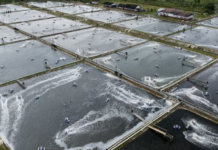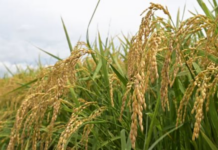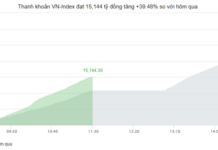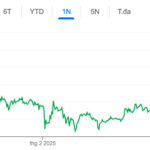Post-Recovery Acceleration: Vietnam’s Textile Industry Faces New Challenges
After a period of stagnation due to global demand decline, Vietnam’s textile industry has rebounded with significant growth. In the first eight months of 2025, textile exports are estimated at approximately $30.8 billion, a 7% increase compared to the same period in 2024. This growth is attributed to businesses ramping up exports, particularly to the United States, following the announcement of a 20% retaliatory tariff by the U.S.
The recovery in orders is the most positive sign. Many companies report full order books until the end of the year, with some already securing orders for Q1/2026. Market surveys reveal that 9 out of 18 listed companies have increased their workforce to meet production demands. Notably, TNG hired 641 workers, May Sông Hồng added over 260, and SGI recruited 285 employees. This hiring surge reflects renewed business confidence and market recovery.
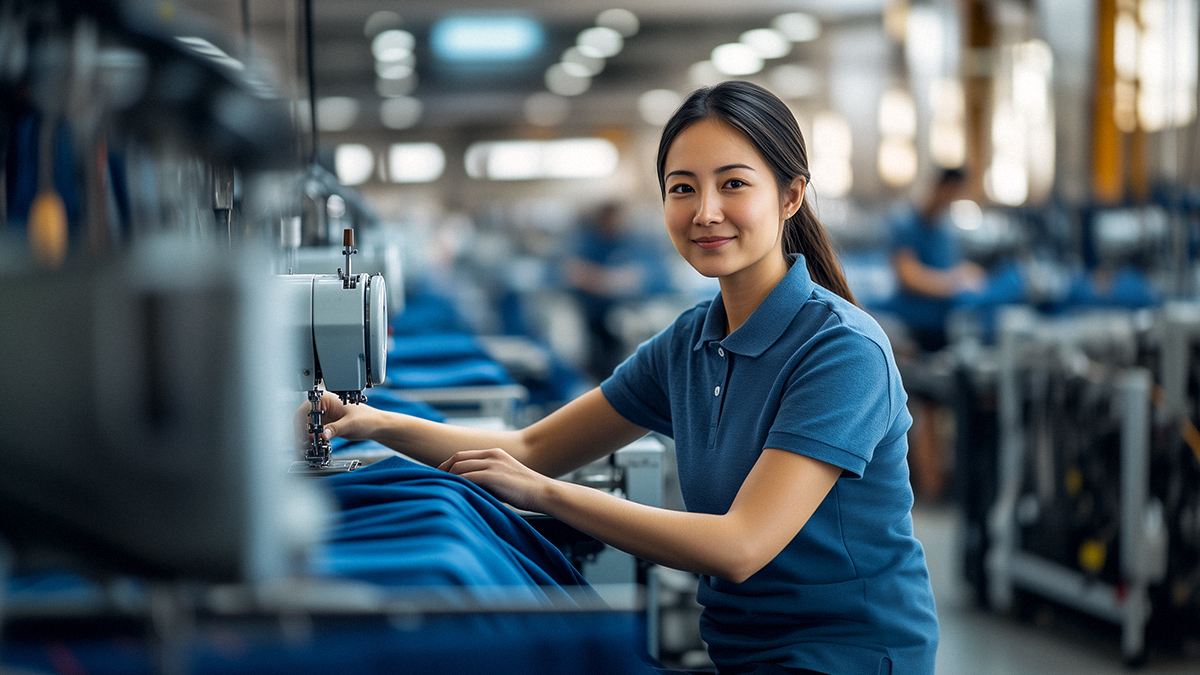
Many textile firms are aggressively hiring to prepare for the new order cycle.
Demand from key markets has also improved. The U.S. remains the largest market, accounting for over half of garment export revenue, followed by the EU and Japan. China, traditionally a raw material supplier, is increasingly importing finished products from Vietnam, opening opportunities in the high-value segment. ASEAN continues to contribute around 8% of market share, reinforcing businesses’ market diversification strategy.
However, sustaining this growth comes with challenges. The U.S. has imposed a 20% tariff on Vietnamese textiles, double the previous rate. Raw material costs from China, India, and South Korea have risen by 5–8%, while the localization rate remains at 40–45%. Additionally, reliance on imported materials and rising labor costs hinder cost optimization, reducing competitiveness compared to peers.
Moreover, free trade agreements impose strict rules of origin, while the U.S. and EU markets emphasize sustainable production and ESG standards. These requirements demand significant time and investment in research, technology upgrades, and compliance to meet market expectations.
Accelerating Growth Through Comprehensive Financial Solutions
Amid these challenges, the textile industry’s growth momentum is bolstered not only by order recovery but also by strategic financial partnerships. ACB offers tailored solutions, providing a comprehensive platform to turn opportunities into tangible growth.
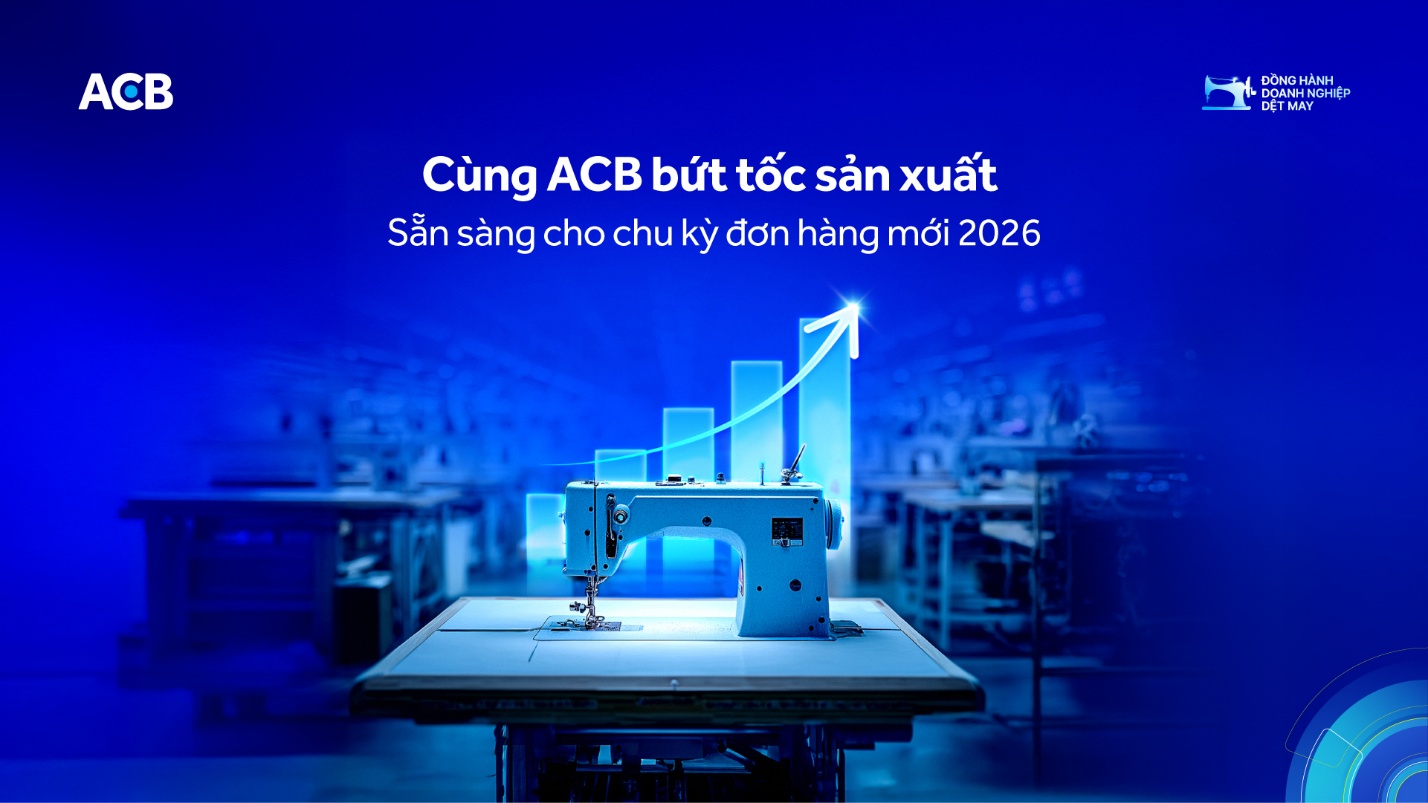
ACB supports textile businesses with customized financial solutions.
Capital is critical for textile firms with long production cycles and export dependencies. ACB’s working capital loans offer up to 2x equity collateral, with preferential rates of 3.5%/year for USD and 4.2%/year for VND. This enables businesses to procure materials, cover expenses, and scale production efficiently. Additionally, medium-term loans support annual equipment upgrades, ensuring long-term business planning.
Financial digitization is another cornerstone. ACB’s textile-specific digital ecosystem centralizes cash flow management, enables online payroll, forex transactions, and real-time cost control. This not only optimizes operations and reduces costs but also meets transparency requirements for premium markets.
What sets ACB apart is its role as a strategic partner, not just a service provider. With industry-savvy experts, ACB offers bespoke solutions, helping businesses leverage trade agreements and adopt sustainable practices aligned with global trends.
Through these integrated solutions, Vietnamese textile firms are empowered to sustain recovery and thrive in the 2026 order cycle. In a landscape of opportunities and challenges, ACB stands as a strategic financial ally, enhancing competitiveness and driving growth in the new cycle.
For more on textile industry financial solutions, visit here or contact the nearest ACB branch/transaction office, or call the 24/7 Contact Center at 028 38 247 247.
In October, the State Bank of Vietnam’s Ho Chi Minh City branch, the Vietnam Textile and Apparel Association, and ACB will host the 2025 Textile Industry Solutions Conference. Experts will discuss tax policies, customs, opportunities, logistics, and tailored financial solutions for the sector.

